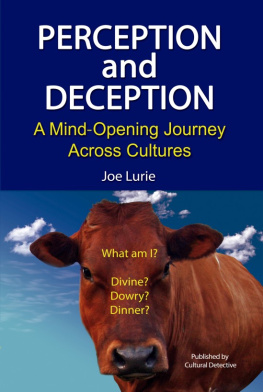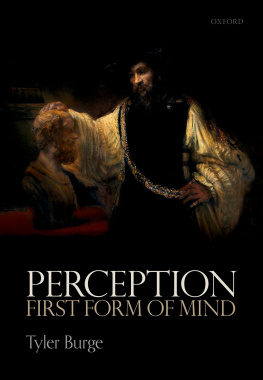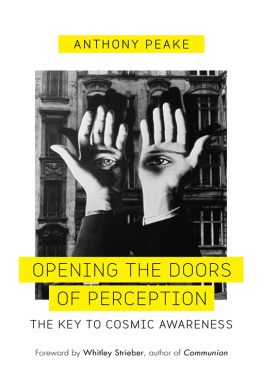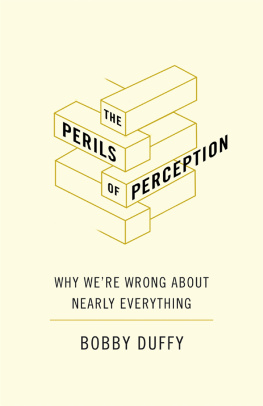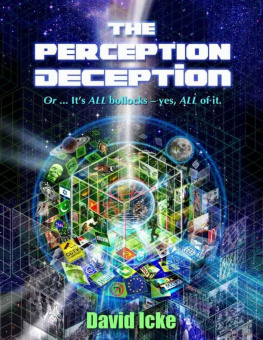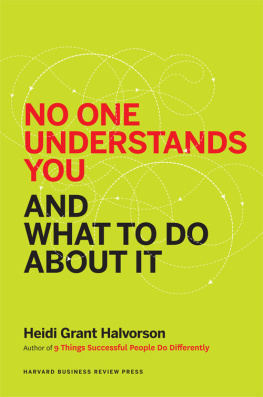Perception and Deception
A Mind-Opening Journey AcrossCultures
Joe Lurie
Copyright 2015 by Joe Lurie and DianneHofner Saphiere
First Edition
All rights reserved. No part of this book maybe reproduced in any form or by any electronic or mechanical means,including information storage and retrieval systems, withoutpermission in writing from the publisher, except by a reviewer whomay quote brief passages in a review.
Cultural Detective Nipporica AssociatesLLC
Leawood, KS 66206 USA
Visit our Website at www.culturaldetective.com
Smashwords Edition ISBN:978-0-9708463-3-4
This ebook is licensed for your personalenjoyment only, and may not be re-sold or given away to otherpeople. If you would like to share this book with another person,please purchase an additional copy for each recipient. If yourereading this book and did not purchase it, or it was not purchasedfor your enjoyment only, then please return to Smashwords.com oryour favorite retailer and purchase your own copy. Thank you forrespecting the hard work of this author.
Also available in paperback ISBN:978-1512113266
ForDonna Rosenthal, my wife and journey-mate: your writers wisdom,perspective, and support made Perception and Deception come tolife.
And to our young nephews and nieces: Cy,Katie, Charlotte, Maya, Elias, Ari, Moriah, and Daniel, for whomthe magic of the world's cultures awaits.
TABLE OF CONTENTS
by Ambassador Martin Brennan, Retired
SmellingLionsBut There Were None
AfricanAwakenings
Close Encountersof a Cross-Cultural Kind at the University of California,Berkeleys International House
Seeing USAmericans Through the Eyes of Others
Words ThatConceal, Words That Reveal
Minefields andMind-Openers in the News
CHAPTER SIX
Misperceptions:Maxims and Musings from Around the World
Prejudice: Racial Superiority is a Mere Pigment of theImagination
AFTERWORD
Bridging Cultures, byDianne Hofner Saphiere
ABOUT THE AUTHOR
JoeLurie
PRAISE FOR PERCEPTION AND DECEPTION
by Ambassador Martin Brennan, Retired
Shortlyafter we arrived in Kigali, Rwanda, in 1977, my wife and I hosted alunch for her Rwandan hospital co-workers. As the dessertdisappeared from the table, our guests glanced at one another andannounced that they wanted to thank us for our hospitality. Theystood up in unison and began clapping, singing, and dancing.
Wed never seen anything like this back homein California. After a moment, my surprise morphed into distinctcross-cultural concern. What was happening? And more importantly,what should we do? Were we expected to sit and smile? Sit and clap?Stand and clap? Orheaven help usjoin the dancing?
If only Joe Luries much-anticipated book hadbeen available back then, Id have recognized that this was anideal moment to go with the flow and enjoy crossing cultures.Perception and Deception is a book of revelation and illumination,sparked by the wisdom the author gleaned while experiencing theworld as a Peace Corps Volunteer, international program executive,intercultural teacher, trainer, and consultant.
Through poignant stories, comparisons ofproverbs, insight into gestures, and gems of cultural-specificwisdom, Perception and Deception brilliantly illustrates thecontrasts between cultures and our propensity to misinterpretunfamiliar cultural realities. To quote Joes favorite Africanproverb: The stranger sees only what he knows. We view the worldthrough the blinders of our cultural assumptions.
Had I been able to don Joe Luries culturallenses while serving in the diplomatic corps in Asia, Africa, andEurope, I would have seen and understood so much more about whatwas really being communicated, although unsaid. I might havereceived the deeper cultural messages that escape one who hearslargely what one is used to hearing, and sees mostly what one isused to seeing. I would have better understood cultures influenceon prejudice, stereotyping, status, and identity.
Joe Lurie conveys insights hes honed overdecades of keen observation, research, and literallytens-of-thousands of conversations around the world. Ive had thegood fortune of being with Joe on some of these forays. Oneevening, when we were lost in Edmonton, Canada, Joe asked twostrangers for directions. They turned out to be Japanese studentsand, within seconds, we were engulfed in a discussion of how peoplefrom different cultures give directions.
I once described to Joe how my hosts abroadoften loaded food onto my plate despite my protestations that I wassatiated. I relegated this phenomenon to the strange quirks offoreignersa universal category, because at times, we are allforeigners. Eyes twinkling, Joe elucidated that in the US, aclean plate signals weve done our duty and wasted not; while, inmuch of the rest of the world, an empty plate signals that theguest is still hungry. Fulfilling my US culturally instilled dutymerely triggered guilt both in me, the guest (How can I allow thisfood to go to waste?), and in my host (How can I leave this guesthungry?).
I didnt fully appreciate the pervasiveinfluence of culture until I met Joe. Inspired by his work, Ilaunched a course in cross-cultural communication at the Universityof California, Berkeley. When I was called to a diplomaticassignment, I asked Joe to take the reins. This ranks among my bestdecisions everakin to asking Fred Astaire to teach dancing. Thecourse has become a popular mainstay under Joes tutelage.
Speaking of Fred Astaire, my wife and Ijoined our dancing Rwandan guests as best we could. Our responseproved to be culturally appropriate. Our initial trepidation in thenext hour of dancing was transformed into friendship andcommunity.
That afternoon I learned another Joe Lurielesson: showing respect for another culture is infinitely moreimportant than doing it right. During his visit to Tokyo,President Obama may not have bowed in the inimitable style of theJapanese, but the fact that he made the effort when greeting theEmperor elicited accolades from the people of Japan. Those whowondered why President Obama would bow to anyone from anothercountry could benefit from Perception and Deception, a mind-openingexploration of the pitfalls of seeing other cultures with eyeswide shut.
For you, the reader, no matter yourbackground or age, this exceptional book will expand yourperceptions of other culturesand your ownin fresh and excitingways.
Santa Margherita dAdige, Italy
The team at Cultural Detective isextremely pleased to bring you Perception and Deception, anentertaining and enlightening read. Its goal matches that of ourlarger series: to build respect, understanding, and collaborationacross cultures.
I met Joe Lurie several years ago, in afacilitator certification workshop for Cultural Detective inBerkeley, California. Joe is a memorable guy: a consummatestoryteller with a booming voice and a jovial sense of humor. Hisstories seemingly span every culture and just about every situationyou can imagine. He talks with people about things I would neverthink of mentioning (for example, how often they wash theirunder-garments, or in what contexts talking about sex is okay). Aconversation with Joe is both hugely educational as well as full ofbelly laughs; he is a delight.
Imagine my pleasure when Joe asked me to workwith him on this book, summarizing some of the major learning hesgained throughout a lifetime working across cultures! You arereading this book, no doubt, because youre interested incross-cultural communication. Perhaps you straddle multiple worldsin your life, work with a team of people from distant locations, orlove to travel. Whatever the reason for your interest, I know youwill enjoy reading this volume as much as I have.
Next page
